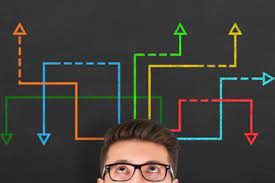Emily Singer
Quanta Magazine
Originally posted 13 AUG 16
Here are excerpts:
Economists have spent more than 50 years cataloging irrational choices like these. Nobel Prizes have been earned; millions of copies of Freakonomics have been sold. But economists still aren’t sure why they happen. “There had been a real cottage industry in how to explain them and lots of attempts to make them go away,” said Eric Johnson, a psychologist and co-director of the Center for Decision Sciences at Columbia University. But none of the half-dozen or so explanations are clear winners, he said.
In the last 15 to 20 years [this article was written in 2016], neuroscientists have begun to peer directly into the brain in search of answers. “Knowing something about how information is represented in the brain and the computational principles of the brain helps you understand why people make decisions how they do,” said Angela Yu, a theoretical neuroscientist at the University of California, San Diego.
Glimcher is using both the brain and behavior to try to explain our irrationality. He has combined results from studies like the candy bar experiment with neuroscience data — measurements of electrical activity in the brains of animals as they make decisions — to develop a theory of how we make decisions and why that can lead to mistakes.
(cut)
But the decision-making system operates under more complex constraints and has to consider many different types of information. For example, a person might choose which house to buy depending on its location, size or style. But the relative importance of each of these factors, as well as their optimal value — city or suburbs, Victorian or modern — is fundamentally subjective. It varies from person to person and may even change for an individual depending on their stage of life. “There is not one simple, easy-to-measure mathematical quantity like redundancy that decision scientists universally agree on as being a key factor in the comparison of competing alternatives,” Yu said.
She suggests that uncertainty in how we value different options is behind some of our poor decisions. “If you’ve bought a lot of houses, you’ll evaluate houses differently than if you were a first-time homebuyer,” Yu said. “Or if your parents bought a house during the housing crisis, it may later affect how you buy a house.”
Moreover, Yu argues, the visual and decision-making systems have different end-goals. “Vision is a sensory system whose job is to recover as much information as possible from the world,” she said. “Decision-making is about trying to make a decision you’ll enjoy. I think the computational goal is not just information, it’s something more behaviorally relevant like total enjoyment.”
For many of us, the main concern over decision-making is practical — how can we make better decisions? Glimcher said that his research has helped him develop specific strategies. “Rather than pick what I hope is the best, instead I now always start by eliminating the worst element from a choice set,” he said, reducing the number of options to something manageable, like three.
Curator's note: Oddly enough, this last sentence is what personalized algorithms do. Pushing people to limited options has both positive and negative aspects. While it may help with decision-making, it also helps with political polarization.
